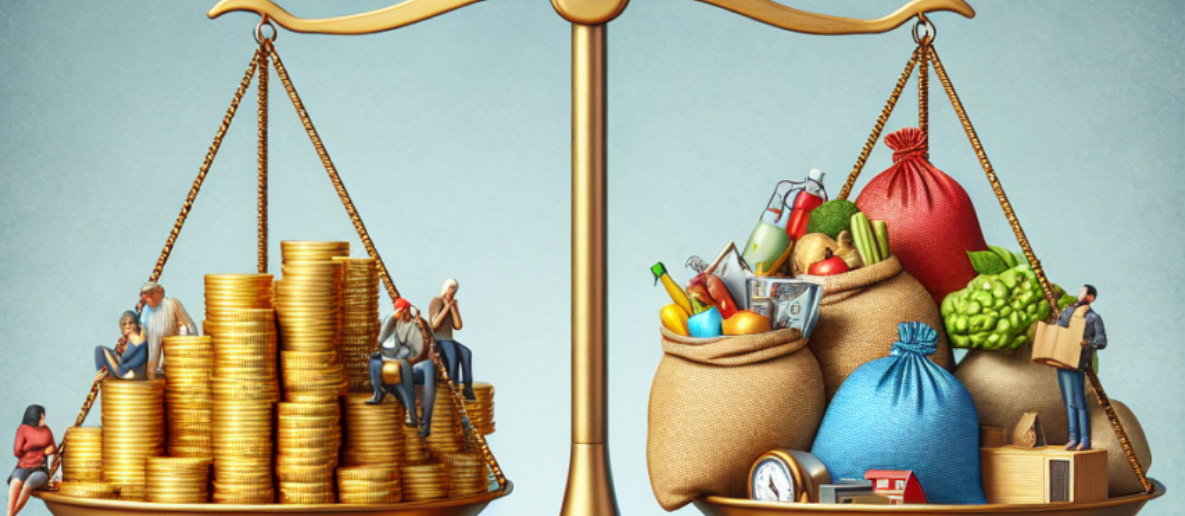
Rajkotupdates.news : us inflation jumped 7.5 in in 40 years: A Comprehensive Analysis
Inflation is a critical economic indicator that affects everyone, from consumers to businesses and policymakers. Recently, the United States has experienced a significant jump in inflation, reaching 7.5%—the highest in 40 years. This article delves into the causes, consequences, and responses to this unprecedented rise in rajkotupdates.news : us inflation jumped 7.5 in in 40 years, providing a comprehensive understanding of its broader impact on the economy and daily life.
Understanding Rajkotupdates.news : us inflation jumped 7.5 in in 40 years
What is Inflation?
Rajkotupdates.news : us inflation jumped 7.5 in in 40 years refers to the rate at which the general level of prices for goods and services rises, eroding purchasing power. It is measured by the Consumer Price Index (CPI), which tracks changes in the price of a basket of consumer goods and services over time.
Historical Context of Inflation in the US
Inflation has varied significantly over the past century, influenced by wars, economic policies, and global events. The last time the US experienced such high inflation was during the early 1980s, when economic policies and oil price shocks drove prices up sharply.
Factors Leading to 7.5% Inflation Rate
Several factors have contributed to the recent spike in inflation:
- Supply Chain Disruptions: The COVID-19 pandemic disrupted global supply chains, leading to shortages and increased costs.
- Increased Demand: As economies reopened, pent-up consumer demand surged, outstripping supply.
- Monetary Policy: Low interest rates and fiscal stimulus measures increased money supply.
- Energy Prices: Rising oil and gas prices have significantly contributed to higher overall inflation.
Comparing Current Inflation with Historical Trends
While 7.5% is the highest in 40 years, it is essential to compare it with historical trends to understand its severity. Previous peaks, such as during the 1970s oil crisis, were driven by different factors, but the economic impact was similarly profound.
See also Ultimate a Comprehensive Guide on Instagram Post Reach UseViral
Impact of Rising Inflation
Effect on Consumers
Rising inflation reduces consumers’ purchasing power, making everyday goods and services more expensive. This can lead to a decrease in consumer confidence and spending, which are critical drivers of economic growth.
Impact on Businesses
Businesses face higher input costs due to inflation, which can squeeze profit margins. They may pass on these costs to consumers through higher prices, potentially reducing demand for their products.
Influence on Wages and Employment
Inflation can lead to demands for higher wages as workers seek to maintain their purchasing power. However, if businesses cannot afford these increases, it could result in job cuts or slower employment growth.
Effects on Savings and Investments
High inflation erodes the value of savings, affecting individuals’ ability to save for the future. It also impacts investments, as inflation can lead to higher interest rates, affecting stock and bond markets.
Economic Policies and Measures
Federal Reserve’s Role
The Federal Reserve plays a crucial role in controlling inflation through monetary policy. By adjusting interest rates and using other tools, the Fed aims to maintain price stability and support economic growth.
Government Fiscal Policies
Government fiscal policies, including taxation and spending, also influence inflation. Stimulus measures can boost demand, but excessive spending may exacerbate inflationary pressures.
Global Economic Factors
Global events, such as supply chain disruptions, geopolitical tensions, and international trade policies, significantly impact inflation rates. Coordinated global responses are often necessary to address these challenges.
Future Outlook and Predictions
Short-term vs. Long-term Projections
Economists provide varying projections for inflation, with some predicting a short-term spike followed by stabilization, while others foresee prolonged inflationary pressures due to ongoing supply chain issues and energy costs.
Potential Mitigation Strategies
Strategies to mitigate inflation include tightening monetary policy, improving supply chain resilience, and promoting energy efficiency to reduce reliance on volatile energy markets.
Expert Opinions and Analysis
Leading economists and financial experts offer diverse views on the future of inflation, highlighting the complexity of predicting economic trends and the importance of adaptable policies.
See also Wellhealthorganic Home Remedies Tag: Natural Solutions for Everyday Health
FAQs about Rajkotupdates.news : us inflation jumped 7.5 in in 40 years
What causes inflation to rise?
Inflation can rise due to increased demand, supply chain disruptions, rising energy prices, and expansive monetary policies.
How does inflation affect my daily life?
Inflation reduces purchasing power, making goods and services more expensive and potentially impacting your ability to save and invest.
What can the government do to control inflation?
The government can control inflation through monetary policy (adjusting interest rates), fiscal policy (taxation and spending), and measures to improve supply chains and energy efficiency.
Will inflation continue to rise?
While short-term inflation may remain high, experts predict potential stabilization as supply chain issues resolve and monetary policies tighten.
How does inflation impact businesses?
Inflation increases input costs for businesses, which may lead to higher prices for consumers, reduced profit margins, and potential job cuts if wage demands rise.
The Federal Reserve controls inflation by adjusting interest rates and using other monetary policy tools to influence economic activity and price stability.
Conclusion
The recent 7.5% jump in US inflation is a significant economic event with wide-ranging implications for consumers, businesses, and policymakers. Understanding the causes, impacts, and potential responses to this inflationary trend is crucial for navigating the challenges it presents. By staying informed and adaptable, individuals and organizations can better manage the effects of inflation on their financial well-being and economic stability.




